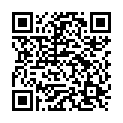|
|
|
| Module code: WIBASc335 |
|
|
2V+2U (4 hours per week) |
|
5 |
| Semester: 3 |
| Mandatory course: yes |
Language of instruction:
German |
Assessment:
Written exam
[updated 13.09.2018]
|
WIBASc335 (P450-0092) Industrial Engineering, Bachelor, ASPO 01.10.2013
, semester 3, mandatory course
|
60 class hours (= 45 clock hours) over a 15-week period.
The total student study time is 150 hours (equivalent to 5 ECTS credits).
There are therefore 105 hours available for class preparation and follow-up work and exam preparation.
|
Recommended prerequisites (modules):
WIBASc235 Engineering Mechanics I
[updated 11.02.2020]
|
Recommended as prerequisite for:
WIBASc-525-625-Ing14 Machine tools
WIBASc-525-625-Ing8 Elements of Technical Products
[updated 11.02.2020]
|
Module coordinator:
Prof. Dr. Michael Krämer |
Lecturer:
Prof. Dr. Michael Krämer
Torsten Schmidt
[updated 11.02.2020]
|
Learning outcomes:
After successfully completing this module students will:
_ be able to deduce which internal force and moment effects from external loads act on a structural component and determine the effective stresses that result from these.
_ be able to recognize which stresses result in which deformations and can calculate these.
_ be able to determine whether a structural component can withstand a given load resp. be able to dimension it sufficiently.
[updated 13.09.2018]
|
Module content:
Strength of Materials:
1. Effects of internal forces on materials: Stress (normal stress, tangential stress)
2. Theory of Elasticity: elastic deformation of structural components (bending of straight bars, shearing, twisting)
3. Uniaxial and biaxial stress states; fracture hypotheses
[updated 13.09.2018]
|
Teaching methods/Media:
Regularly revised lecture notes will be passed out.
[updated 13.09.2018]
|
Recommended or required reading:
_ Holzmann, G./ Meyer H./ Schumpich G.: Technische Mechanik, Festigkeitslehre, 9. Auflage, Teubner Verlag, 2006
_ Böge, A.: Technische Mechanik _ Statik-Dynamik-Fluidmechanik-Festigkeitslehre; 28. Auflage, Vieweg+Teubner-Verlag, 2009
_ Gross, D./ Hauger, W./ Schröder, J./ Wall, W.: Technische Mechanik 2 _ Elastostatik, 9. Auflage, Springer-Verlag, 2007
[updated 13.09.2018]
|

